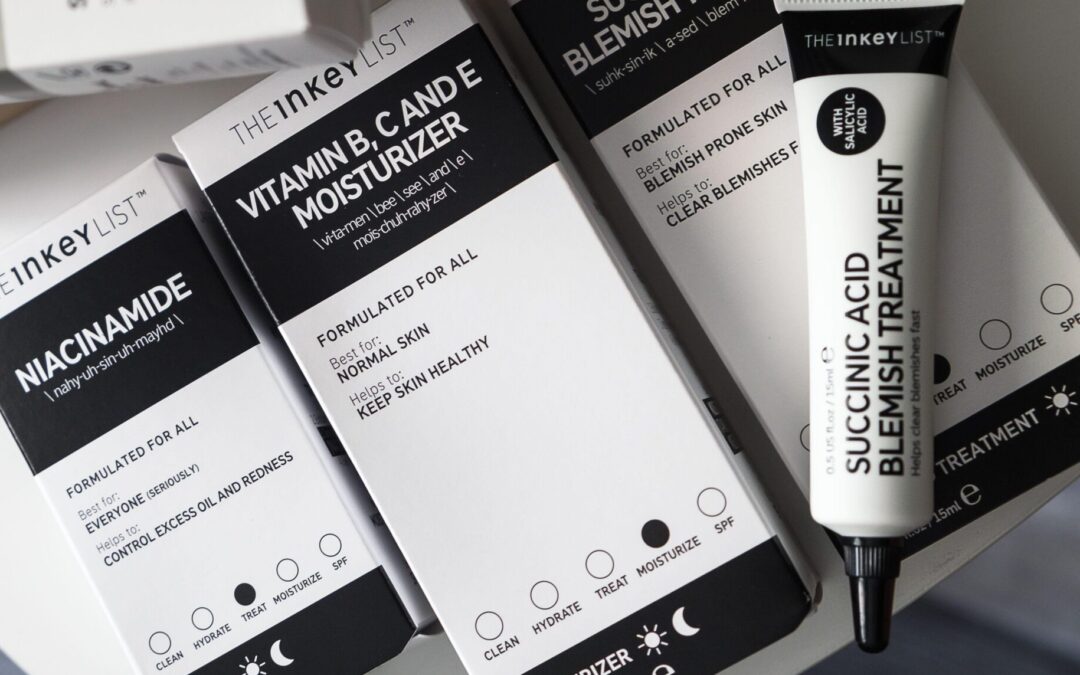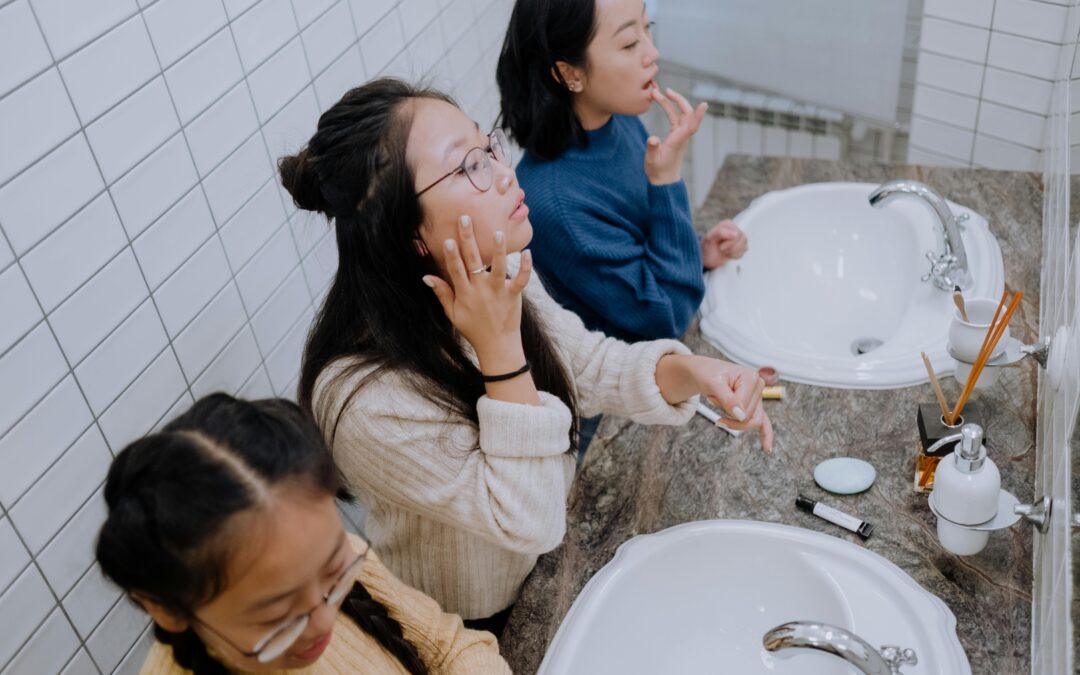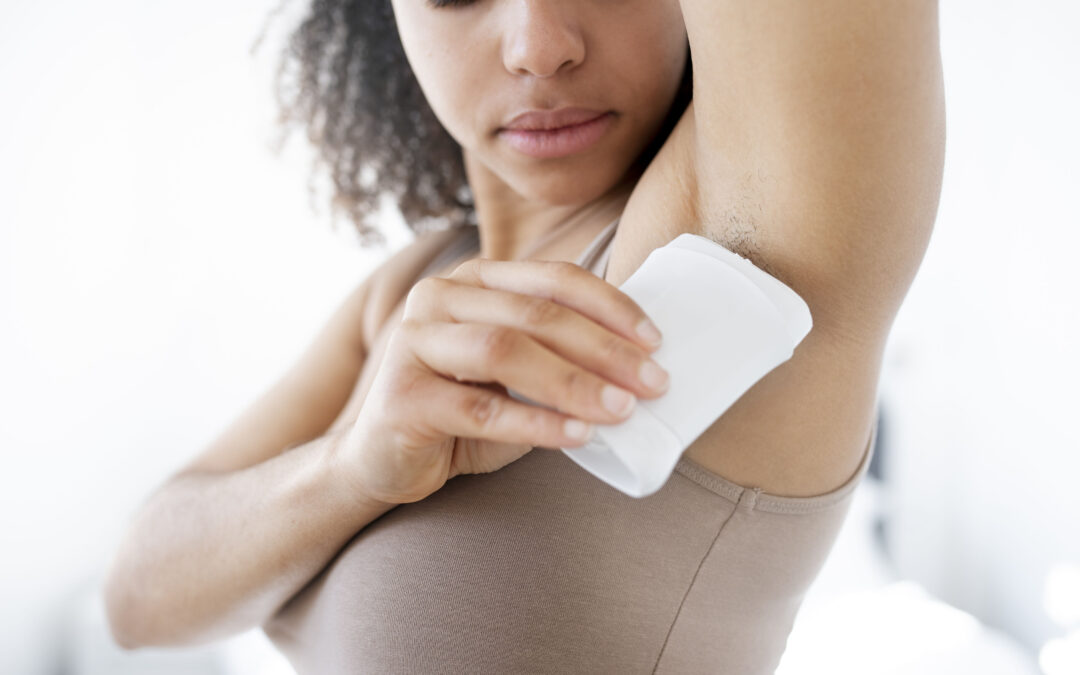Natarika and Joe didn’t experience acne until they reached adulthood. They describe how they had to grapple with the influence of social media, both in how they viewed themselves during this time and how they treated their skin.
Society tells us that if we are to experience spots and acne, it will be during our teenage years. It seems at this age, struggling with your skin tends to be so common that, while unpleasant and difficult for many teens to manage, you at least aren’t too alone.
But what about people with acne in their twenties? What if you had gone all through your teens without any real skin issues, then suddenly as a young adult, you found yourself dealing with serious acne. This comes at a time when those around you, both in person and online, seem to have flawless skin.
Natarika Jantawong was 25 when she began developing a significant number of spots for the first time. At first, she thought it was just stress induced acne that would quickly pass, but it soon became clear that wasn’t going to happen.
She began suffering from deep cystic acne, which made it very painful for her to touch her skin. Her cheeks were inflamed and red, this also made them itchy, only adding to her discomfort.
She said: “It got so bad, all I could see when I looked in the mirror was my acne.”
She recalls the moment she realised she had to get in contact with a dermatologist as when she began scratching at her spots in her sleep.
She said: “When you’re asleep you don’t realise how hard you’re scratching. I would wake up sometimes and there would be dry blood on my pillow and scabs.
“I stopped wanting to go out, I stopped taking selfies. Even when I went to put makeup on, I didn’t feel like myself.
“I know acne doesn’t define you as a person, but for someone going through it for the first time in their life, I felt really ugly and it made me feel really depressed. So that’s when I decided to go and see a dermatologist.”
Joe Smith was 19 when he also started to struggle with acne for the first time and he then continued to do so into his twenties. This came as a particular shock to Joe, as at this time, at least physically, he was in a really good place. He was really into caring for his body and going to the gym consistently.
He said: “the acne came on very, very quickly. Not so much my face, but around my jaw and neck area it would be very, very bad and painful at times.”
For Joe this began to trigger somewhat of an obsession over caring for his skin. He found himself constantly washing his face and moisturising, thinking he should engage in more skincare than he was before.
“I’d be analysing my skin to the point where it was, not literally with a microscope, but to the tee.
“It doesn’t do anything for you, it just makes it get worse. I’d pop one spot and the next day there would be five.”
At the time, Joe was approaching 60,000 followers on TikTok where he was posting about his body building journey among other things. The “red voluptuous spots” he began developing temporarily made him no longer feel comfortable posting.
“It goes back to social media beauty standards. I didn’t want sarcastic comments saying well your diet must be great if you have this number of spots.
“Now I could post anything and someone’s comment won’t hurt me, but back then, that was a huge stress for me.
“I felt I had to keep up with this image of the people you see online and their borderline flawless skin.
“Having worked in videography and stuff like that with clients who are also posting their physique, they’re very, very obsessive over checking every angle and it’s very, very fake.”
READ MORE: Can’t Escape Acne? Accutane Advice
Joe found it hard not having anyone around him going through the same thing in their early twenties. He didn’t have many friends at the time and those he did have weren’t struggling with their skin like he was.
Natarika’s particularly unusual, sudden and unexpected onset of acne midway through her twenties was difficult for her to get her head around.
She said: “Growing up as a teenager going through puberty, I rarely had any spots and even if I did, it would be like one or two at a time, that’s it.
“I was like why am I getting acne at the big age of 25? It was really confusing.
“Most people go through it in their teenage years, so you think everyone can relate, but as an adult it just threw me off.”
Joe said: “Going through school and everything my skin was just normal.
“It was quite a shock because I thought I would have gone through this already and now I’m an adult I was like, what’s going on?”
Online advice, advertisements and social media skincare content had a big impact on how the two of them thought they should treat their acne.
Natarika said social media advice “got her sucked in” and was probably what made her skin worse.
“I was following advice from influencers and Googling too much.”
She tried so many different skincare products that, looking back she feels they only made her skin more inflamed, especially products with harsh, active ingredients.
Natarika sought a private dermatologist who decided it was appropriate for her to be prescribed isotretinoin (accutane) to treat her cystic acne. This was very successful and eliminated the vast majority of her acne over the course of treatment, with little to no side effects.
Joe also saw a dermatologist, where he was put on the antibiotic doxycycline. However, he found this made his skin worse, not better. He instead found success in quitting almost all skincare, eating a cleaner diet, improving his gut microbiome and trying not to stress so much about his skin.
Everyone has different skin types and acne can be caused for many or a combination of different reasons. Natarika described her skin as oily, whereas Joe struggled with very dry skin.
Natarika is particularly concerned about the impact skincare advice on social media is having on easily influenceable, young children.
“I teach primary school kids, so many of them are on TikTok. I genuinely think these kids are going to destroy their skin before they turn 18 with the influence of skincare nowadays.”
Natarika previously worked for the NHS and had been able to speak to staff from the dermatology department, she felt this helped her be more informed than most people on acne treatment. But despite this, she still struggled to avoid being swayed by advertisements and paid promotions on social media.
“Even for me as a 25-year-old, I saw recommendations of products claiming to be dermatology approved and thought yeah, it’s going to work for me.
“So, when I was with my dermatologist, I was telling him all the things I was using and he was like why are you using so many active ingredients?”
The dermatologist said: “Just stick to the simple stuff, cleanser, moisturiser, sunscreen, that’s it.”
While acknowledging that the right product, used in the right way, under the right circumstances can obviously improve skin conditions, Natarika feels their marketisation on social media does “more harm than good.”
She adds: “And the kids, they don’t realise it’s paid promotion, obviously they’ve got the small #ad, but the kids aren’t going to notice that are they.”
Natarika urges people in a similar situation to her to “be patient and try to find the cause.”
She said: “If it’s hormones or life circumstances that are contributing, go and see a dermatologist.”

Joe believes “social media can be a very, very productive space” when you take someone’s advice online and it ends up being beneficial to you. However, he feels the lack of verification and the fact anyone has a platform to say anything, as if it applies to everyone has its downsides.
He said: “you end up having this overload of information, so you end up thinking okay, I’m just going to try everything.”
However, after some time, Joe too came to the realisation that for him, this just didn’t seem to be working.
“I think that overload of information led me to just try nothing and go back to what I’d done in school.”
The tendency of the skincare industry to feed overconsumption was not something Joe felt was good for people’s skin.
“When you think about the idea of needing to buy this product to make my skin look like this, you’re basically buying into a lifetime subscription of you need to buy this thing.”
Natarika and Joe’s experiences show that treating acne is not something that can be solved with a one size fits all approach, as some skincare brands and influencers may lead you to believe.
What works for one person may not be right for another and there are always a range of treatment options available.
By sharing their skincare journeys across social media, Natarika and Joe aim to help others in a similar position, by giving them someone to relate to through content highlighting their unique, individual skin struggles and how they overcame them.



